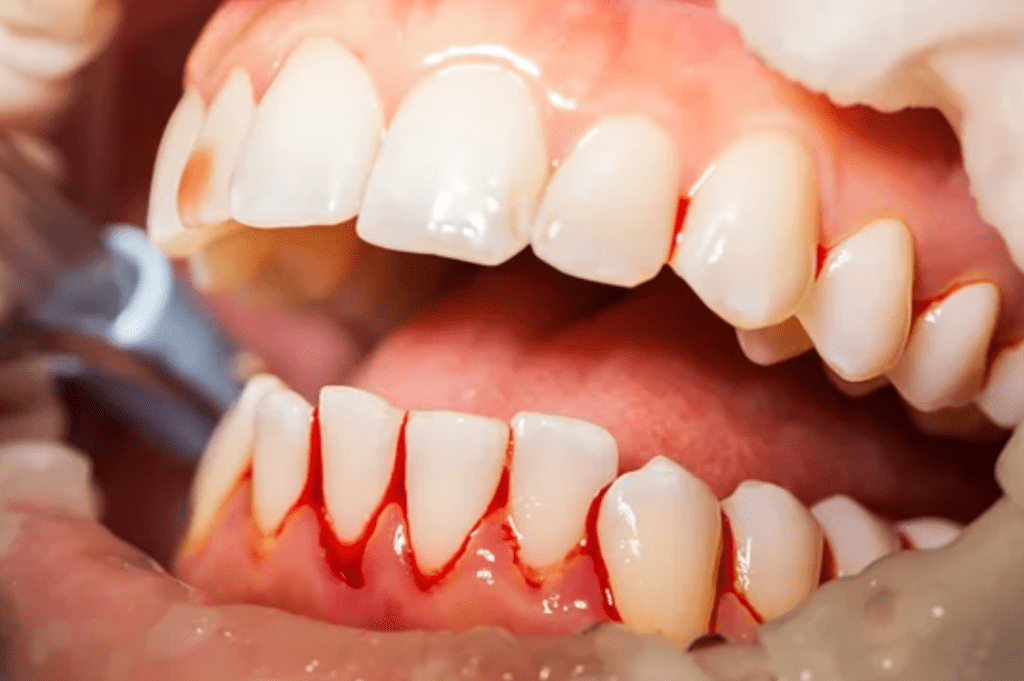Gum disease is an infection of the gum tissues. Initially, gum disease presents as bleeding or swollen gums. However, it can progress to tissue, tooth, or bone loss. It is vital to treat gum disease because it will continue to advance. If you can get to a dentist early, your treatment options will likely be much simpler.

Brushing and Flossing
Luckily, you can treat gum disease at home if you catch it soon enough. If you have gingivitis–early-stage gum disease, you can likely improve your oral health. This is because the most common cause of gum disease is poor oral health. When you don’t adequately remove plaque from your teeth and gums, it causes irritation. The irritation can cause swelling and bleeding. Typically, most patients notice gum disease when their gums start bleeding. Hopefully, you will quickly make a call to your dentist to initiate treatment.
After your dentist examines your teeth, they may recommend a different oral health routine. This will likely involve brushing your teeth more thoroughly or changing your toothbrush. Some toothbrushes are more effective at removing plaque than others. For example, an electric toothbrush may help you get rid of more plaque.
Additionally, your dentist will recommend that you floss more efficiently. Flossing at least once a day is vital for your oral health. This is because brushing alone is not enough to eliminate plaque buildup. With flossing, you can remove plaque between your teeth and under your gum line.
Hopefully, your gum disease will stop advancing. If not, your dentist has other options for treatment.
Scaling and Root Planing
If you have more severe gum disease or plaque buildup, you will need to undergo a scaling and root planing treatment. This is a type of deep cleaning treatment that should eliminate all your plaque buildup. When plaque remains on your teeth too long, it hardens, becoming tartar. Tartar is a calcified version of plaque. However, only a dental professional can remove it. Without removal, plaque and tartar can cause your gums to recede.
During this procedure, your provider will use several tools to remove the plaque and tartar gently. They will likely use a scaler, which is a metal device with a pointed tip. Some of these have a vibrating function that will help chip away the tartar. Additionally, they will use a water spray to flush the plaque from the pockets in your gum line.
Oral Surgery
Finally, your dentist may recommend oral surgery if you have advanced gum disease. There are several different types of oral surgery. A common procedure used for treating gum disease is flap surgery. During this surgery, your surgeon will make several small cuts along your gums. This is because they will flip the skin back in order to clean and remove any plaque or tartar. Once the skin heals, cleaning your teeth and gums should be easier.
